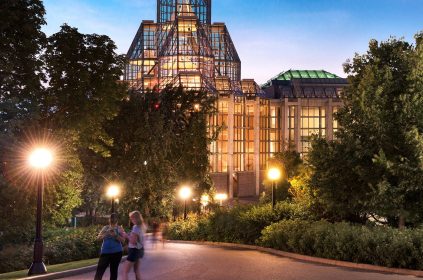WE’KOQMA’Q — We’koqma’q First Nation is on its own healing journey.
The Mi’kmaq community of about 1,200 residents has been plagued by the effects of residential schools, colonization and centralization and the lateral violence it caused. And for Tina Bernard it caused a lot of anger, but as she began training as a crisis counsellor, she began to understand the lingering pain from having a loved one who attended a residential school.
She found that an Indigenous focus on healing helped immensely and the We’koqma’q Family Healing Centre helped compel the community forward.
“I’ve witnessed a lot of healing,” said Bernard.
She moved away for about a decade and upon moving back she’s seen a lot of growth. We’koqma’q’s fishery is a large economic driving force for the community. The gas station and Tim Hortons along highway 105 also provide community jobs.
Bernard said one mainstay though is the community’s love of fast-pitch.
“This is central to Mi’kma’ki ways of being healthy,” said Bernard.
She remembers playing the sport when she was 12, hitting home runs and praying to the mountains. It was one of the only sources of entertainment for the community. And she’s glad to see the sport continue.
Last weekend, We’koqma’q played host to a men’s fast-pitch tournament and the We’koqma’q Warriors celebrated their 40th year together. For 33-year-old Desmond Bernard it was all about getting the community back together again.
“With all the pandemic stuff going on, not many people got to go out,” he said.
He works as a carpenter in the community, doing home repairs and he loves his community. He helped organize the tournament and used his skills to build one of the dugouts. He said playing ball is part of the community and started when he was about eight years old.
“I love working and playing ball.”
Bryan Googoo is 58 years old and used to play for the Warriors. He’s been around the diamond since he was a kid.
“It was the only thing to do back then. No phones, no computers, so we just got out there and played ball until it got dark,” said Googoo.
He was happy to see the tournament because he knows it brings fans in from other reserves and that could mean business for the local economy. Googoo said he’s worked as a carpenter, a fisher, gardener and in public works. And he adores We’koqma’q.
“We’koqma’q is simply the best reserve in Nova Scotia,” said Googoo.
Although, he would like to see an improvement in the environment and is worried about the number of fish in the river.
Magit Poulette is 77 years old and says the sport is all about cheering on her community. She remembers when there was barely a field in We’koqma’q and now the community has two. Poulette used to play also.
“We used to play against the women from Paqtnek,” said Poulette.
She remembers getting hit by a foul ball that broke her glasses and then she needed stitches. But she still attends to cheer on her family. Poulette is dedicated, too. She had two guests who wanted to visit with her on their trip from Ontario. But she told them they had to wait because she had games to watch.
“I just like to see them win,” said Poulette.
Tina Bernard said these games are all about creating camaraderie, but you can see the connections being made in the stands as well. People laughing and having a good time, patching up any old grievances she sees these gathering as a vital part of the community.
Bernard heard stories of when the Warriors were so poor, they played without gloves but those are the kind of memories they love to share with one another. For her, it’s about that shared collective history and as the community heals, she sees more and more people thinking about the collective.
“We’re so lucky to have such high-calibre people,” said Bernard.
Oscar Baker III, Local Journalism Initiative Reporter, Cape Breton Post












